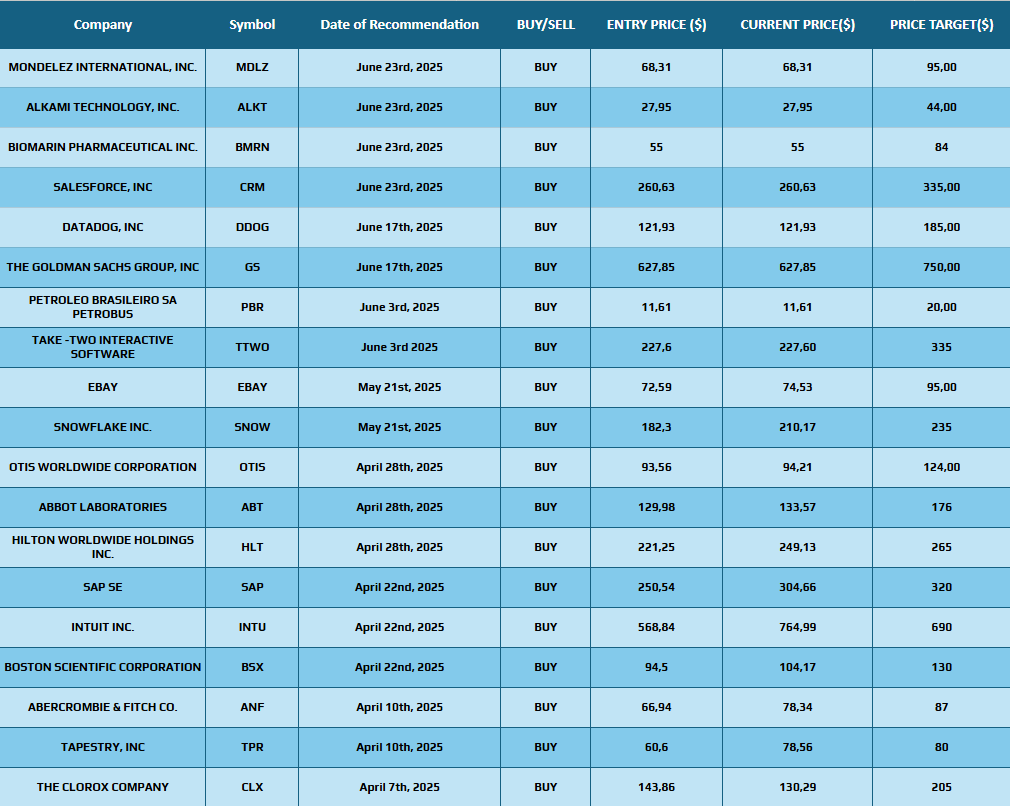
Date Issued – 24th June 2025
Preview
Oil prices dropped nearly 3% after Iran’s missile strike on Al‑Udeid airbase caused no casualties, easing immediate supply concerns. Super Micro’s stock dipped ~10% following its announcement of a $2 billion convertible debt issue, despite strong YTD AI-driven growth. U.S. existing home sales edged up 0.8% to 4.03 M annualized in May, with inventory rising 20% and median prices reaching a record $422,800. In Sydney, Virgin Australia shares jumped 11% post–A$685 million IPO, though valuation risks linger. Global equities rallied across Asia and Europe after a tentative Israel‑Iran ceasefire was announced, while oil and Treasury yields pulled back.
Oil Drops After Iran Strike Causes No Casualties
Oil prices tumbled after Iran’s retaliatory strike on a U.S. airbase in Qatar caused no casualties, signaling possible de-escalation in the Middle East conflict. Brent fell below $70, reversing gains made after the U.S. struck Iranian nuclear sites. Markets interpreted Tehran’s limited response as a sign of restraint, with President Trump acknowledging Iran’s “early notice” and expressing hope for peace. So far, fears of a Strait of Hormuz shutdown – through which 20% of global crude flows – remain unrealized, though geopolitical risks remain elevated.
Investment Insight:
The sharp drop in crude suggests traders are pricing out an imminent escalation. While energy stocks may lose short-term momentum on easing risk premiums, this could present buying opportunities if the broader conflict remains contained. Keep an eye on tanker rates and Gulf shipping routes – any disruption there would reignite bullish pressure on oil. For now, oil-importing sectors like airlines and transportation may see relief as jet fuel and freight costs stabilize. But sentiment remains fragile: one misstep could flip markets back into risk-off mode.
Super Micro Falls on $2 Billion Debt Offering
Super Micro Computer shares dropped 10% after announcing a $2 billion convertible debt offering, raising investor concerns about dilution. While the company plans to use proceeds for growth and stock buybacks, the market reacted negatively to the potential equity conversion. Despite the dip, shares remain up ~40% YTD, driven by strong AI server demand and partnerships with Nvidia and AMD. Super Micro recently secured a key Middle East contract and is seen as a top AI infrastructure play, though past concerns over tariffs and governance still weigh on sentiment.
Investment Insight:
The pullback may offer a tactical entry for long-term investors bullish on AI infrastructure. Dilution risk from the convertible notes is real, but strategic reinvestment and continued demand for AI servers could offset near-term weakness. Monitor Super Micro’s ability to deliver guidance stability, especially after 2024’s governance shakeup and the May guidance cut. The stock’s AI exposure still positions it favorably if data center capex accelerates – but expect volatility around earnings, geopolitical chip tensions and balance sheet clarity.
U.S. Home Prices Hit Record Despite Rate Headwinds
U.S. existing home sales edged up 0.8% in May, surprising analysts who expected a decline. Inventory rose sharply year-over-year (+20%), but housing supply remains tight overall. Median home prices hit a record $422,800, driven by demand outpacing supply, especially in the mid-tier segment. Homes are taking slightly longer to sell and high mortgage rates continue to weigh on first-time buyers. Cash buyers and stronger activity in the $750K–$1M range are cushioning the broader slowdown.
Investment Insight:
The housing market remains bifurcated: softening activity on the low and ultra-high ends, but stable demand in the mid-tier where inventory is improving. Watch mortgage rate trends – any Fed pivot or yield curve shift could spark a release of pent-up demand. For investors, homebuilder stocks and REITs exposed to mid-market suburban housing may benefit if rates drop and activity rebounds. However, luxury exposure looks more vulnerable as rate sensitivity rises and equity market volatility trickles into buyer behavior.

Virgin Australia Jumps 11% in Sydney After Relisting
Virgin Australia surged 11% on its trading debut in Sydney after Bain Capital raised A$ 685 million in a major IPO – the biggest airline listing in Asia Pacific in a decade. Despite the strong opening, Morningstar flagged valuation concerns, citing the airline industry’s thin margins and structural limitations. Bain retains a 40% stake, while Qatar Airways remains a key investor. Geopolitical risks, especially in the Middle East, could challenge airline profitability if oil prices spike, though Tuesday’s relief in crude helped boost airline stocks across the region.
Investment Insight:
Virgin Australia’s IPO success reflects revived investor appetite for aviation in a bullish Australian equity market. However, long-term returns may be hampered by persistent cost pressure and limited pricing power across the sector. Investors should approach post-IPO enthusiasm cautiously, watching oil prices, geopolitical developments and regional travel trends. While the listing offers liquidity and potential upside in a benign macro environment, valuations already appear rich relative to industry fundamentals.
Markets Rally on Tentative Israel–Iran Ceasefire News
Global markets rallied after President Trump announced a tentative ceasefire between Israel and Iran, easing immediate fears of a broader Middle East escalation. Major indices in Asia and Europe posted gains and oil prices fell as concerns about a Strait of Hormuz blockade diminished. However, Israel’s vow to retaliate after further missile activity clouds the outlook. Meanwhile, U.S. Treasury yields declined following dovish comments from Fed officials and investors await Jerome Powell’s testimony for rate-cut clues. Tesla led U.S. gains with an 8.2% surge on news of its autonomous taxi trial.
Investment Insight:
The markets’ relief rally underscores how investor sentiment remains tethered to geopolitical signals. While the ceasefire de-escalation boosted risk appetite, the situation remains fluid and one misstep could reignite volatility, especially in oil. Keep a close eye on Powell’s congressional remarks – any dovish shift could fuel further equity upside. However, if inflation expectations rise due to renewed energy price pressures, rate cut bets may cool quickly. Traders should stay nimble and focus on sectors most sensitive to Fed policy and Middle East risk, including energy, defense and transport.
Conclusion
This morning’s news paints a nuanced market landscape: geopolitical de-escalation in the Middle East brought relief to oil and equities, but regional tensions remain a wild card. Super Micro’s convertible debt signals both confidence in growth and dilution risk – making it a tactical entry point for AI-focused investors. The housing market shows resilience with rising sales and record prices, buoyed by elevated mortgage rates. Virgin Australia’s IPO highlights renewed appetite in travel, though its elevated valuation demands caution. Moving forward, keep an eye on Middle East developments, Federal Reserve communications and rate-sensitive sectors – energy, housing, airlines – as catalysts for market direction.
Upcoming Dates to Watch
- June 27th: U.S. Core PCE Price Index
- July 4th: Senate vote on Republican + debt ceiling bill
- July 8th: China Non-Manufacturing PMI
Find below some of our Buy/Sell Recommendations. Balfour Capital Group is a distinguished global boutique investment management firm with $350 million AUM and over 1000 Clients.

Disclaimer: This post provides financial insights for informational purposes only. It does not constitute financial advice or recommendations for investment decisions.




